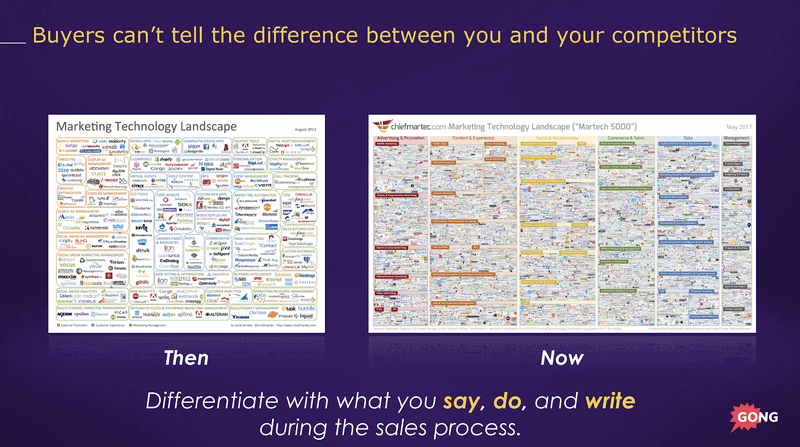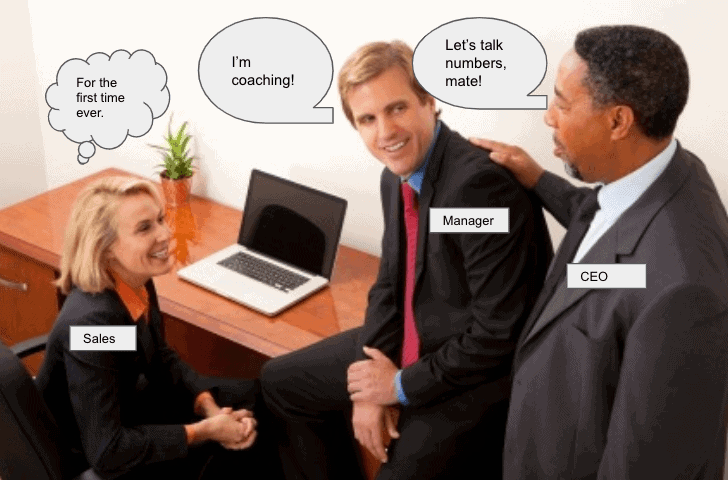tl;dr
Relationship builders are often seen as too soft to perform well in sales. Nevertheless, this does not mean that the skill of relationship-building should be undervalued. A good relationship allows the salesperson to give advice and challenge the lead. Moreover, a trusting and friendly relation can be your edge in an otherwise indistinguishable mix of purchasing options for buyers.
Friendship as a key differentiator?
A conversation with my friend Lodewijk, Head of Sales at Recruitee, made me interested in revisiting the topic of empathy again in the context of sales. His conviction is that towards the end of any sales process, the lead will need to decide between 2-4 options. Ranking high amongst the most important influences on the buying decision is the nature of the relationship with the salesperson that was built.
Product differentiation is dead
The headline is a great example of a nexus, a provoking statement that gets you to think. This particular nexus has been claimed by Gong.io to underline that your product won't get you to close a deal. I.e. CRMs are nearly indistinguishable for leads and competitive features can be copied within a matter of weeks. The differentiating factor must be the customer experience during the sale and a big part of that is made up of the relationship between buyer & seller.

Relationship building as a weakness
The Challenger Sale book claims that a relationship builder type sales rep is the lowest-performing of them all. The challenger, an educator that teaches the lead about new things, is likeliest to win. Although the book says that lines between the character types are fluid, most people see it as set sales rep categories. Hence, the underlying quality that makes up a relationship builder is questioned: empathy.

The reason for the low performance of relationship builders is attributed to their bias of focussing on building friendships and pleasing the lead, which inhibits the ability to close or influence a deal process. I do agree to this line of argumentation and I roll my eyes thinking about the number of times that a job candidate told me that he wants to work in sales because 'I'm good with people' or I am a great relationship builder. If that is your only qualification, then you will not come far in sales.
Relationship builders are the ones that see the relationship as a goal; great challengers see it as a means towards their goal.
What determines relationships?
A lot of studies have been done on the effect of empathy on sales and rather unsurprisingly there was mostly a positive correlation between empathy and sales performance. Nevertheless, empathy alone doesn't build a relationship. I think the best book to turn to for advice is the classic 'How to make friends and influence people' by Dale Carnegie:
- Avoid criticizing, condemning, or complaining
- Praise others’ achievements
- Be empathetic
- Know the value of charm
- Encourage people to talk about themselves
- Know when to use suggestions instead of direct orders
- Acknowledge your own mistakes
- Respect others’ dignity
- Don’t try “winning” an argument
- Be friendly, no matter how angry the other person may be
- Reach common ground as soon as possible
- Get others to think your conclusion is their own
Empathy is one of the many factors that influence the extent to which you can build a relationship and influence people.
It's in the mix
'The challenger sale' book is often interpreted in a way that a challenger is low on empathy and relationship-building skills, which is not true. A challenger leads with expertise, but also has the empathy to know how and when to challenge a customer. If a salesperson challenges a lead too early, without having built the relationship required to do so, a deal is jeopardized. Moreover, does the 'Challenger sale' graph above really say that a challenger is not a hard-worker nor a problem-solver?
No, the challenger sales characteristics are not mutually exclusive. All of the ingredients are needed to bake the perfect cake, the proportions just need to be right.
This is the hard thing about sales hiring and social science in general, nothing is binary its always a scale. A salesperson should be:
- Trustworthy but not arrogant
- Direct but not commanding
- Empathetic but not recessive
- Hard-working but not mechanical
- Problem-solving but not inefficient
- etc.
Conclusion
All in all, I agree with Lodewijk, a good relationship with a client can give you the last edge over your competition. The relation should hold up against the following three questions:
- Does the lead trust the salesperson?
It is nearly impossible to fake actual curiosity for somebody else's problem. Consequently, the feeling of 'the person really cares about me' is vital to establishing a trusting relationship.
- Does the lead perceive the salesperson as an expert?
A caring sales rep alone is not good enough. Is the salesperson perceived as an expert that can actually help and understand the situation that the lead is in?
- Does the lead grant the deal to the salesperson?
On top of that, once the buyer considers the salesperson to be somewhat of a friend and looks forward to discussing their current situation with them, then the salesperson has a clear edge over the competitor.



